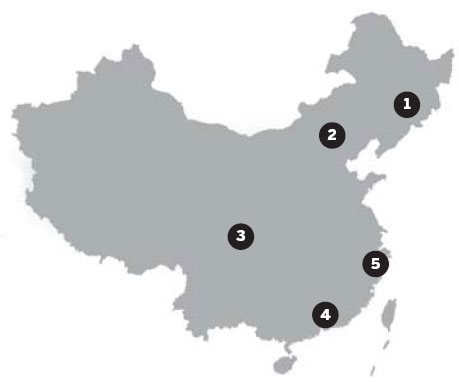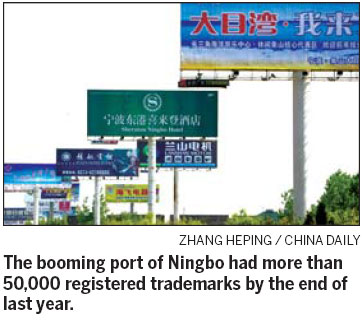IP Scene

1. Jilin
Jobs, revenues created by distinctive farm products
The total value of agricultural products with geographical indications (GI) in the province has now reached 7.6 billion yuan and created jobs for 1.6 million people in 14 counties and districts.
The provincial government said it has made great efforts since 2009 to cultivate agricultural brands with market competitiveness, focusing on products including ginseng, deer horn, mushrooms and herbs.
2. Beijing
'Top 10' IPR cases show changing economy
The Beijing Higher People's Court recently released the top 10 IPR cases in 2009. Unlike previous years, when the majority were copyright infringements, four cases last year were related to trademark infringement and unfair competition.
The proportion of commercial disputes increased last year and included industries including catering, clothing and IT.
The increase in commercial law disputes reflects changes in the economy in modern society, noted Chen Jinchuan, the presiding judge of the tribunal.
Notable cases also included three copyright infringements, two patent infringement cases and one computer software copyright dispute.
72-hour race to create and implement patents
A "72-hour Race to Innovation" by Swedish professor Kaj Mickos was held last month in Beijing.
Ten Chinese and foreign participants from varied backgrounds and industries arrived to meet the unprecedented creative challenge: How to create patents within 72 hours.
With "improving the daily life" as its theme, the race aimed to help people to interact and conceptualize ideas and production along with evaluation, registration of patents and other aspects of product innovation.
3. Sichuan
Chengdu blueprint calls for 20 percent patent rise
The Chengdu government has issued its intellectual property strategy for 2010, which seeks to increase patent applications by 20 percent while at the same time guaranteeing their quality.
According to the blueprint, enterprises should play the dominant role in technological innovation as they increase patent applications by 25 percent.
The city government will fully implement a brand strategy this year as part of its effort to make Chengdu a model city for implementation of national trademark strategies.
4. Guangdong
1 billion yuan yearly for independent innovation
Authorities of Guangzhou, capital of the southern province, plan to boost local high-tech industries with an annual investment of at least 1 billion yuan for independent innovation and high-tech industries for three consecutive years.
According to the local development and reform commission, the capacity for independent innovation is the region's core competitiveness.
5. Zhejiang
Ningbo among first group of trademark model cities
Ningbo of Zhejiang province has been named among the first group of model cities by the State Administration for Commerce and Industry to implement national trademark strategies.
By the end of last year, the city had a total of 52,495 registered trademarks, including 20 well-known trademarks with administrative approval, 331 province-wide famous trademarks and 783 municipal famous trademarks.

(China Daily 06/02/2010 page15)














